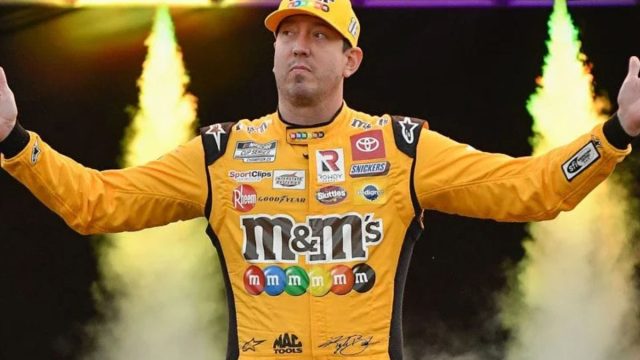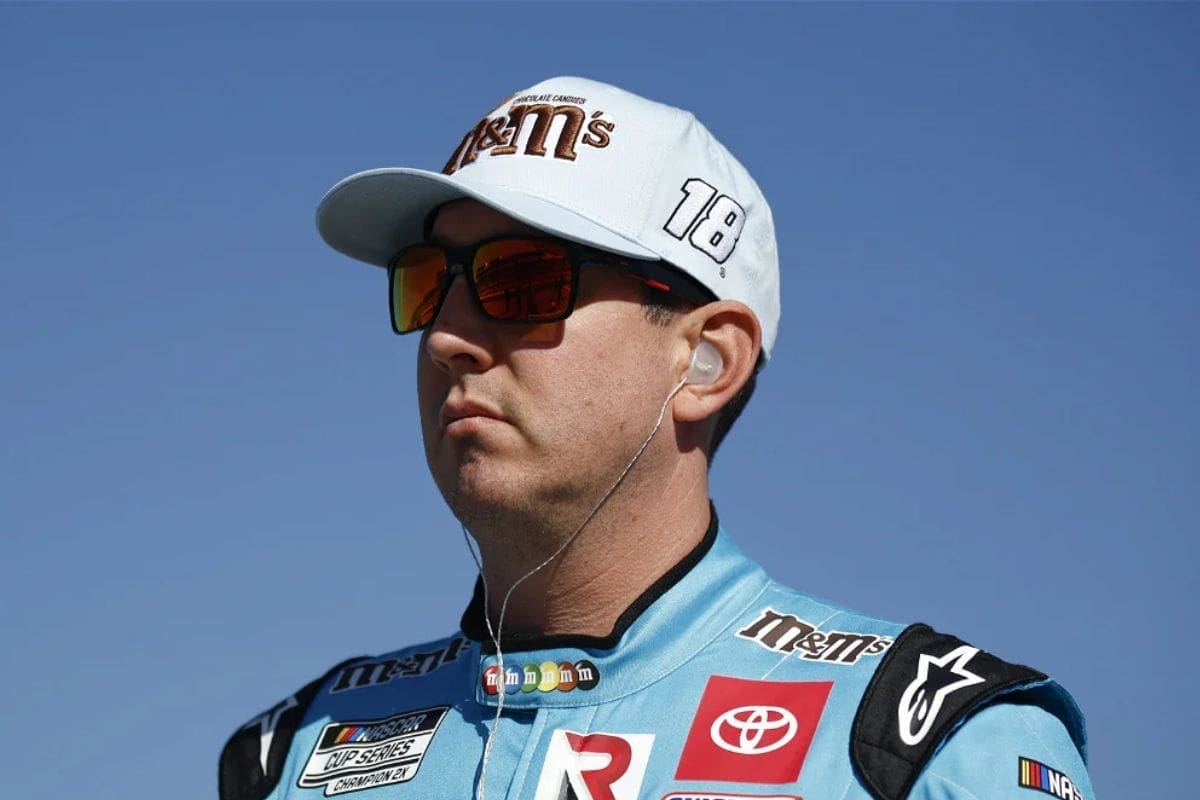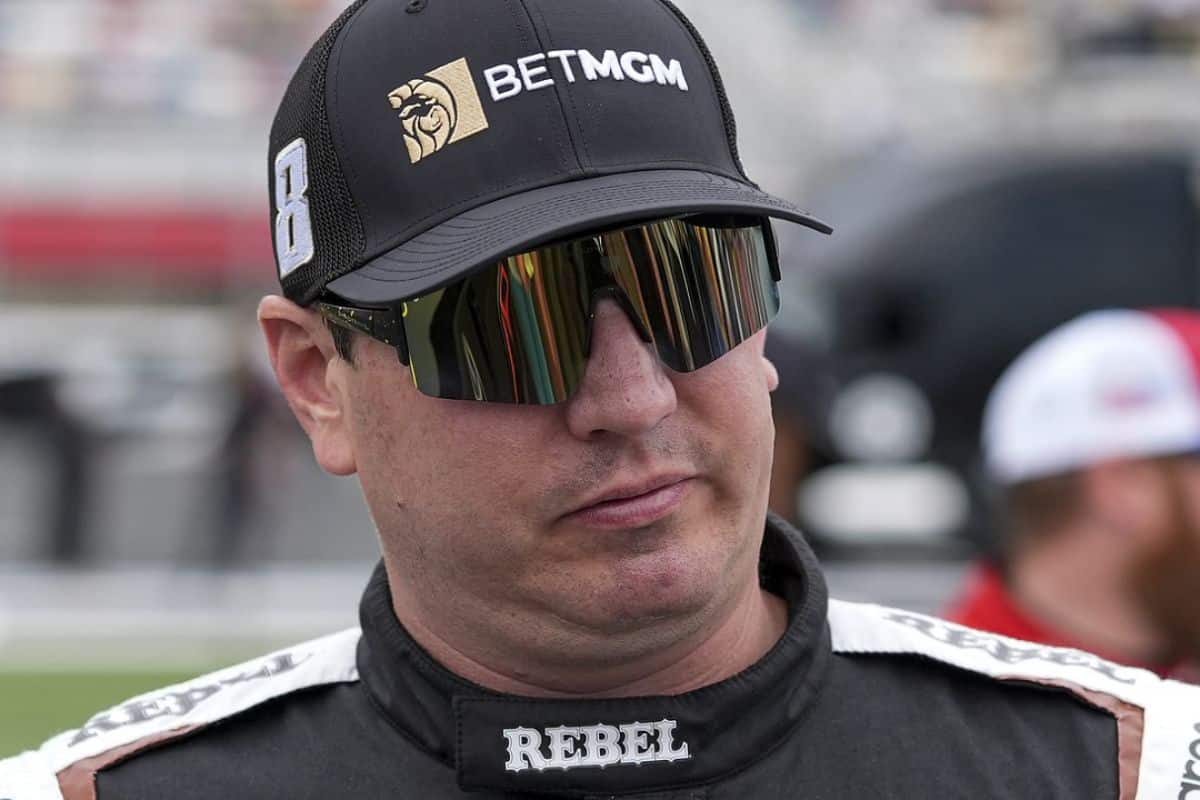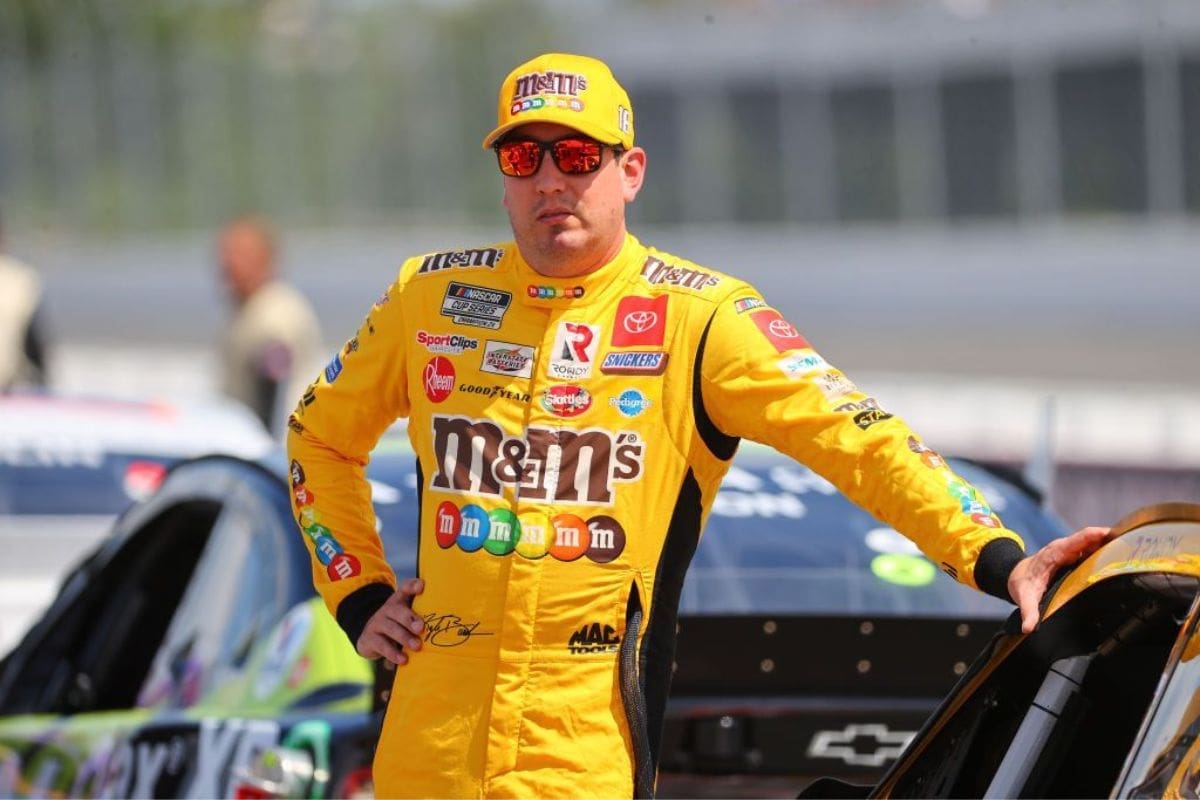Kyle Busch’s Early Iowa Exit: Kyle Busch‘s abrupt exit from the Iowa Speedway due to mechanical failures casts a shadow over his NASCAR Cup Series playoff aspirations. This setback necessitates an urgent strategic change and highlights the critical need for improved vehicle reliability and consistent high finishes in forthcoming races. With playoff at stake, Busch’s team faces the challenge of finding the mechanical issues and ensuring peak performance in a highly competitive field. As the stakes rise, the implications of this race day misfortune could define Busch’s season, raising questions about his and his team’s readiness to adapt and overcome.
Key Highlights
- Mechanical failure on Lap 270 at Iowa Speedway severely impacted Kyle Busch’s playoff hopes.
- The left rear differentiator issue and power steering failure led to an early race exit.
- Busch’s playoff chances are now at risk due to the loss of valuable points.
- The No. 8 RCR team must secure high finishes in upcoming races to stay playoff eligible.
- Recent struggles with the Next Gen car have compounded the urgency for strategic reassessment.
Kyle Busch’s Race Day Misfortune
Kyle Busch’s race at Iowa Speedway was hindered by a mechanical failure on Lap 270, greatly impacting his playoff aspirations. The No. 8 Richard Childress Racing (RCR) car, driven by Busch, experienced a sudden and debilitating issue with the left rear differentiator, as reported by Busch over the team radio. The phrase ‘The diff is broke’ succinctly captured the gravity of the situation, signaling an imminent end to Busch’s competitive run in the race.
In the moments following the initial mechanical failure, Busch managed to guide his compromised vehicle to pit road. However, the situation deteriorated further when his power steering failed, rendering the car virtually unmanageable. This dual mechanical setback forced Busch out of the race and highlighted the persistent technical challenges faced by the #8 RCR team throughout the season.
The mechanical failures encountered at Iowa Speedway are reflective of the broader struggles Busch and his team have faced. Despite their concerted efforts, the confluence of mechanical misfortunes has impeded their capacity to maintain consistent competitive performance. The consequences of these technical issues extend beyond a single race, pointing out vulnerabilities in both vehicle reliability and team preparedness.
This incident marks another entry in a series of unfortunate events for Busch this season, further complicating an already tumultuous campaign. The technical difficulties at Iowa decrease his immediate race prospects and raised significant questions about the car’s reliability and the team’s ability to address recurring issues.
Impact on Playoff Hopes
The mechanical failures at Iowa Speedway have critically undermined Kyle Busch’s playoff prospects, leaving the No. 18 team with an uphill battle to secure a spot in the postseason. With only 10 races remaining in the regular season, Busch’s early exit from the Iowa race due to multiple issues is a significant setback. This Did Not Finish (DNF) adds urgency to an already challenging season for the two-time champion, who has struggled to find consistent performance and avoid misfortune.
Busch’s current predicament is intensified by the critical nature of each remaining race. Each missed opportunity to accumulate points pushes the No. 18 team further away from playoff eligibility. The necessity for a flawless performance in the upcoming races cannot be overstressed, as every point will be vital in determining playoff qualification. The team’s current standing demands a series of high finishes to bridge the gap created by this latest DNF.
Kyle Busch spoke about his 2nd DNF of the season. #NASCAR
📺 : USA Network | #NASCAR pic.twitter.com/IZ4zEoDF5m
— NASCAR on NBC (@NASCARonNBC) June 17, 2024
Derek Kneeland, Busch’s spotter, correctly highlgihted the season’s misfortunes, noting the team’s series of bad luck. This sentiment highlights the broader issue facing Busch: without a reversal of fortune and improvements in race performance, securing a playoff berth remains uncertain. The margin for error has effectively vanished, necessitating not only skill but also a shift in luck.
It could rain 100 dollar bills and we would get a penny. Unreal the luck this year we are having
— Derek Kneeland (@SpotterDerek) June 17, 2024
Recent Performance Struggles
Busch’s recent performance struggles are highlighted by a string of five consecutive races without a top-10 finish, emphasizing the challenges the No. 8 team faces with the Next Gen car. The last notable performance was a P8 finish at Darlington, but since then, the trajectory has been markedly downward. This trend has placed Busch in a precarious position in the points standings, where he was already on the 15th place before the Iowa race, and it is expected that this rank will now plummet further.
- Adaptation Issues with Next Gen Car: Busch has openly expressed his struggles with adapting to the Next Gen car, which has been a significant factor in the team’s recent lackluster performances.
- Inconsistent Race Strategies: The No. 8 team has faced challenges in formulating and executing effective race strategies, often resulting in suboptimal finishes.
- External Competition: The competitiveness of the field has increased, with many teams and drivers adapting more swiftly to the new car, thereby escalating the demands on Busch and his team.
Mechanical Failure Analysis
Amidst the struggles of recent performances, the No. 8 car suffered a critical mechanical failure at Iowa, which Kyle Busch attributed to Next Gen parts and issues with the left rear suspension. This incident marks a significant blow to Busch’s playoff aspirations, emphasizing the persistent challenges posed by the Next Gen car’s components.
“I don’t know what happened, but Next Gen parts and pieces broke. So something in the left rear suspension—I don’t know if it was a toe link or whatever.” – Busch
The failure, as described by Busch, involved multiple issues converging to force an early exit from the race. Initially, it appeared that a component within the left rear suspension—potentially a link—had failed. This type of failure can severely impact a car’s handling and performance, rendering it uncompetitive. The left rear suspension is vital for maintaining stability and grip, and any compromise in this area can lead to catastrophic results, as seen in Busch’s case.
“Came into fix it roll it back out, blew the power steering wheel. Belt just broke, so I have no idea … Having a pretty decent day, I mean, we had a top ten run going, and we had an opportunity there to score some points, but not to be.” – Busch
Furthermore, as the team attempted to address the suspension problem, another issue surfaced: the power steering belt broke, further compounding their woes. Power steering is necessary for precise control, especially on a demanding track like Iowa. The loss of power steering would make controlling the car significantly more challenging, increasing the risk of further incidents.
Team Reflection and Future Prospects
Reflecting on their recent setbacks, the RCR team must reassess their strategies and improve their vehicle reliability to secure a stronger position in the playoffs. The early exit of Kyle Busch from the Iowa race highlights significant vulnerabilities that could jeopardize their playoff aspirations. It is vital for the team to adopt a multi-faceted approach to rectify these issues.
First and foremost, the team must focus on enhancing the mechanical reliability of their vehicles. Frequent mechanical failures have been a recurring issue and addressing this will be pivotal in ensuring consistent performance.
Moreover, refining their race strategies to be more adaptive to race conditions can provide a competitive edge. This involves not only tactical decisions during the race but also pre-race preparations and simulations.
The RCR team should also aim for higher consistency in top finishes. Merely aiming for top 10 finishes, as they have been, will not suffice in the competitive environment of the playoffs. A recalibration of their performance goals is necessary to secure a spot in the knockout rounds.
- Vehicle Reliability: Implementing rigorous checks and maintenance schedules to prevent mechanical failures.
- Strategic Adaptation: Developing more flexible and responsive race strategies tailored to varying race conditions.
- Performance Goals: Setting and achieving higher performance benchmarks to consistently finish in top positions.
News in Brief: Kyle Busch’s Early Iowa Exit
Kyle Busch’s early departure from Iowa Speedway due to mechanical issues has critically undermined his playoff aspirations. This incident necessitates a strategic overhaul, focusing on improved vehicle reliability and consistent top-tier finishes.
The team’s ability to address these challenges and adapt will be crucial in securing a playoff position. Analyzing recent performance setbacks and mechanical failures will be vital for formulating an effective response to the increased competitive demands in the NASCAR Cup Series.
ALSO READ: Kyle Busch’s Decline: The Surprising Reason



